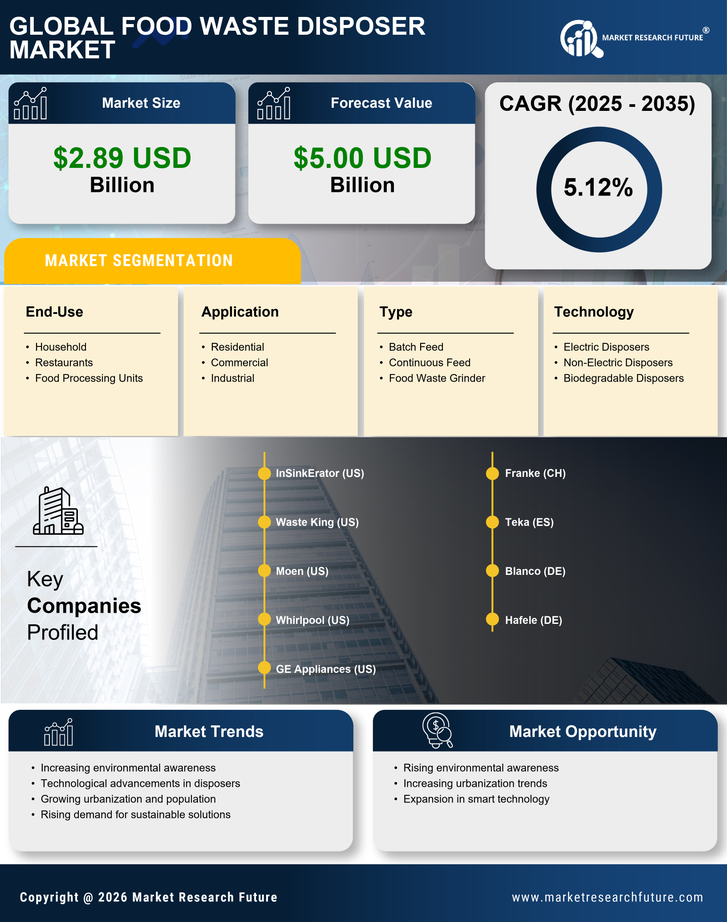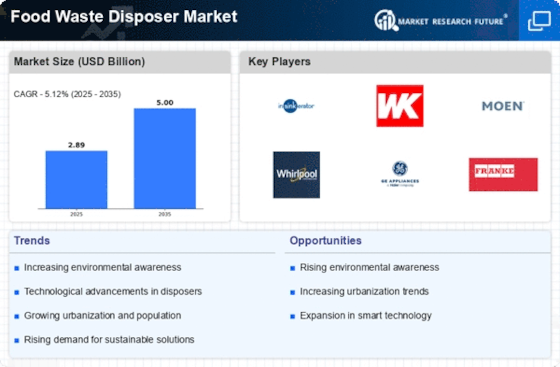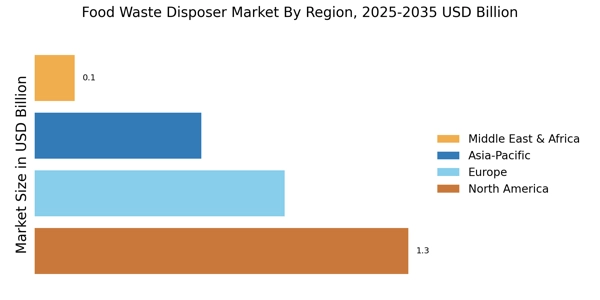Regulatory Support
Government regulations aimed at reducing food waste are likely to bolster the food waste disposer Market. Various jurisdictions are implementing policies that encourage waste reduction and promote composting. For instance, some regions have introduced incentives for households that utilize food waste disposers, thereby fostering a culture of responsible waste management. This regulatory support not only enhances consumer adoption but also positions the Food Waste Disposer Market as a viable solution to meet legislative goals. The potential for increased market penetration is evident as more consumers become aware of these regulations and their benefits.
Urban Living Trends
The rise of urban living is significantly influencing the Food Waste Disposer Market. As more individuals move to urban areas, the demand for convenient waste management solutions is increasing. Urban dwellers often face space constraints, making food waste disposers an attractive option for managing organic waste efficiently. Market analysis shows that urban households are more likely to adopt disposers due to their ability to reduce the volume of waste that needs to be transported to landfills. This trend indicates that the Food Waste Disposer Market is poised for growth as urbanization continues to shape consumer preferences.
Environmental Awareness
The increasing awareness regarding environmental issues appears to be a driving force in the Food Waste Disposer Market. Consumers are becoming more conscious of their ecological footprint, leading to a heightened demand for solutions that minimize waste. According to recent data, food waste accounts for a significant portion of landfill contributions, which in turn generates greenhouse gases. As a result, households are increasingly adopting food waste disposers as a means to divert organic waste from landfills. This trend suggests that the Food Waste Disposer Market is likely to experience growth as more individuals seek sustainable waste management solutions that align with their values.
Technological Advancements
Technological innovations in food waste disposal systems are transforming the Food Waste Disposer Market. Recent advancements have led to the development of more efficient and quieter disposers, which appeal to a broader consumer base. Features such as energy efficiency and improved grinding capabilities are becoming standard, enhancing user experience. Market data indicates that the introduction of smart technology, such as app connectivity for monitoring waste disposal, is gaining traction. This integration of technology not only improves functionality but also aligns with the modern consumer's preference for smart home solutions, suggesting a promising future for the Food Waste Disposer Market.
Health and Hygiene Concerns
Health and hygiene considerations are emerging as critical drivers in the Food Waste Disposer Market. With an increasing focus on cleanliness and sanitation, consumers are seeking effective ways to manage food waste at home. Food waste disposers provide a hygienic solution by reducing the presence of decomposing organic matter, which can attract pests and produce unpleasant odors. Data suggests that households equipped with food waste disposers report higher satisfaction levels regarding kitchen cleanliness. This growing awareness of hygiene is likely to propel the Food Waste Disposer Market forward as consumers prioritize health-conscious living.


















